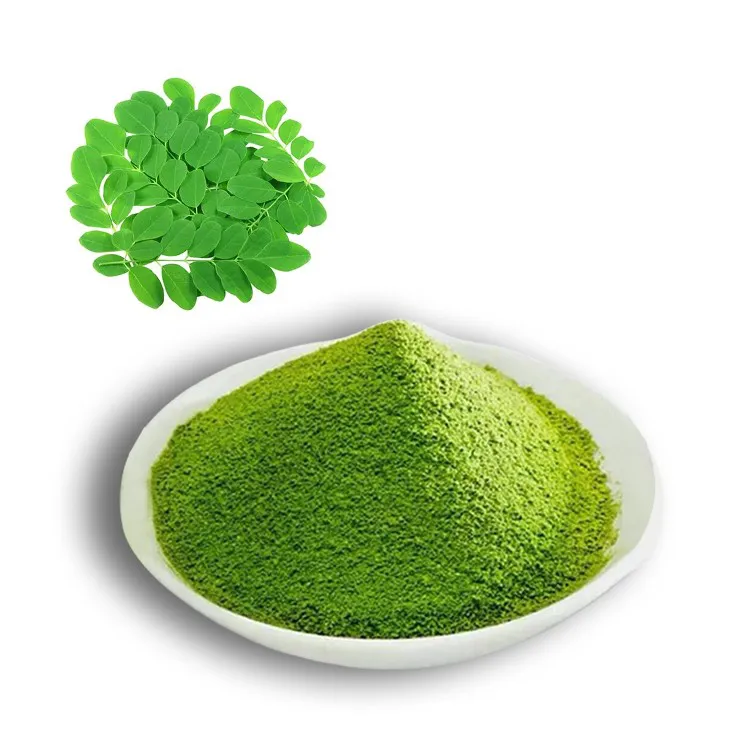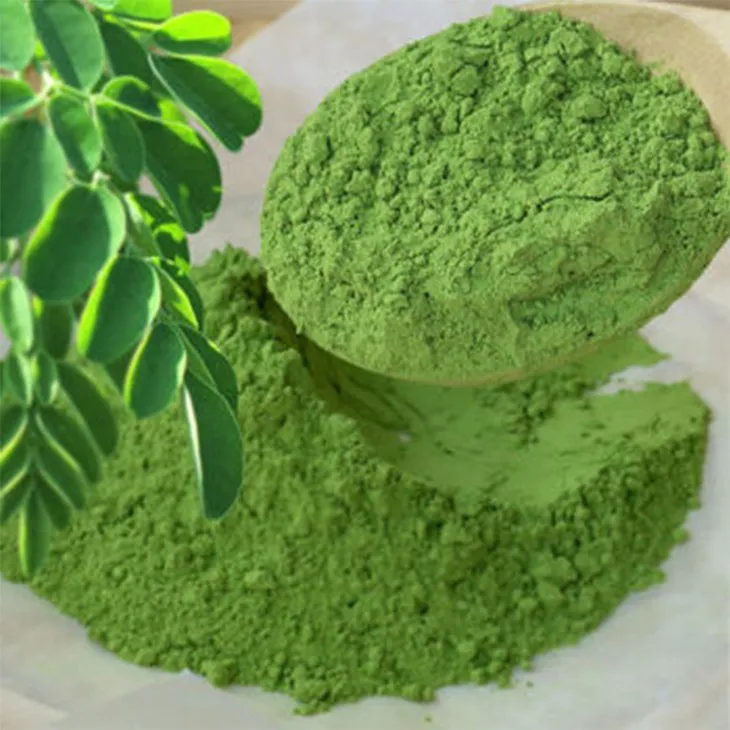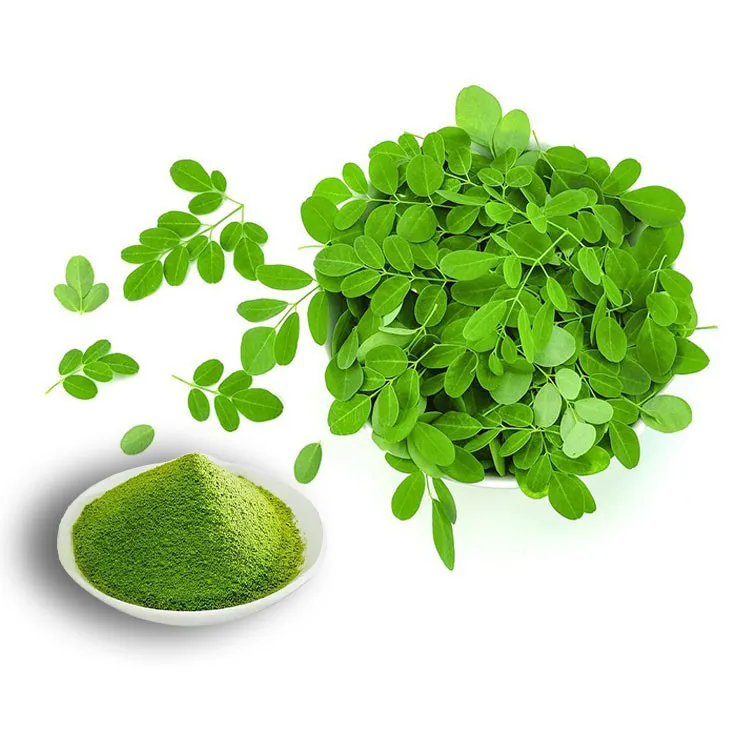- 0086-571-85302990
- sales@greenskybio.com
The Best Sources of Natural Moringa Powder.
2024-12-01

Introduction
Moringa powder has been gaining significant popularity in recent years due to its numerous health benefits. It is rich in vitamins, minerals, antioxidants, and other essential nutrients. However, not all Moringa powder is created equal. The quality of Moringa powder depends largely on its source. In this article, we will explore the best sources of natural moringa powder, the regions known for high - quality production, and the factors that contribute to its superiority.

What is Moringa?
Moringa, also known as the "miracle tree," is a fast - growing, drought - resistant tree native to parts of South Asia and Africa. It has been used for centuries in traditional medicine and as a food source. All parts of the moringa tree are edible, but the leaves are most commonly used to make moringa powder. Moringa leaves are a nutritional powerhouse, containing high levels of vitamin A, vitamin C, calcium, potassium, and protein.

Best Regions for Moringa Production
India
India is one of the largest producers of moringa in the world. The country has a long history of using moringa for both medicinal and culinary purposes. The climate in many parts of India is ideal for moringa growth, with warm temperatures and well - distributed rainfall. In addition, India has a rich agricultural tradition, which means that farmers have the knowledge and experience to cultivate moringa effectively.
- Andhra Pradesh: This state in southern India is known for its large - scale moringa cultivation. The soil in Andhra Pradesh is fertile, providing the necessary nutrients for moringa trees to thrive. - Tamil Nadu: Another southern Indian state, Tamil Nadu also has favorable conditions for moringa growth. The state has a diverse agricultural landscape, and moringa has become an important part of its agricultural economy.
Africa
Africa is the native home of moringa, and many African countries are now major producers of moringa powder. The continent's diverse climates and soils offer a wide range of conditions suitable for moringa cultivation.
- Senegal: Senegal has a semi - arid climate, which is well - suited for moringa. The trees are often grown in small - scale farms and home gardens. Moringa has become an important crop for local communities, providing a source of income as well as a nutritious food source. - Malawi: In Malawi, moringa is grown in various regions. The country's fertile soils and relatively stable climate contribute to the healthy growth of moringa trees. Moringa products from Malawi are known for their high quality.

Growth Conditions for High - Quality Moringa
The quality of moringa powder is directly related to the growth conditions of the moringa tree. Optimal growth conditions ensure that the tree produces leaves with maximum nutritional value.
Soil
Moringa trees can grow in a variety of soils, but they prefer well - drained, sandy loam soils. These types of soils allow for proper root development and nutrient absorption. Soil with a pH between 6.2 and 7.0 is considered ideal for moringa growth. If the soil is too acidic or alkaline, it can affect the tree's ability to take up nutrients, which in turn can impact the quality of the moringa powder produced.
Climate
Moringa is a tropical and subtropical plant, so it thrives in warm temperatures. The ideal temperature range for moringa growth is between 25°C and 35°C. However, moringa is also relatively drought - resistant and can tolerate some degree of cold, although frost can damage the tree. Adequate rainfall or irrigation is also important for moringa growth. While moringa can survive in dry conditions, consistent moisture promotes better growth and higher - quality leaves.
Superiority of Natural Sources
Natural sources of moringa powder offer several advantages over synthetic or mass - produced alternatives.
Purity
When moringa powder is sourced from natural, organic farms, it is less likely to be contaminated with pesticides, herbicides, or other chemicals. Organic moringa powder is pure and free from harmful residues, making it a healthier choice for consumers. In contrast, non - organic moringa may be exposed to various agricultural chemicals during cultivation, which can pose potential health risks.
Nutritional Value
Natural moringa powder retains its full spectrum of nutrients. The leaves are harvested at the right time and processed in a way that preserves their nutritional content. In some cases, synthetic moringa products may be fortified with additional nutrients, but these may not be as bioavailable or as well - balanced as the natural nutrients found in pure moringa powder. For example, the natural combination of vitamins, minerals, and antioxidants in moringa leaves works synergistically to provide maximum health benefits.
How to Identify High - Quality Natural Moringa Powder
When looking for high - quality natural moringa powder, there are several factors to consider.
Color
High - quality moringa powder should have a bright green color. A dull or yellowish - green color may indicate that the powder is old or has been poorly processed. The color is an indication of the freshness and quality of the moringa leaves used to make the powder.
Texture
The texture of the powder should be fine and smooth. Coarse or lumpy powder may suggest that it has not been properly ground or may contain impurities. A smooth texture indicates that the powder has been processed with care and is likely to be of higher quality.
Smell
Good - quality moringa powder has a pleasant, earthy smell. If the powder has a musty or off - smell, it may be a sign of spoilage or poor - quality raw materials. The smell can give you an idea of the freshness and purity of the moringa powder.
Benefits of Consuming High - Quality Natural Moringa Powder
Consuming high - quality natural moringa powder can have a wide range of health benefits.
Nutritional Boost
As mentioned earlier, moringa powder is rich in vitamins, minerals, and protein. Regular consumption can help fill nutritional gaps in the diet, especially for those who may not be getting enough of these nutrients from other sources. For example, it can be a great source of vitamin C for people who don't eat a lot of fruits, or a source of calcium for those who are lactose - intolerant.
Antioxidant Properties
Moringa powder contains antioxidants such as Quercetin, chlorogenic acid, and beta - carotene. These antioxidants help protect the body against oxidative stress, which is linked to various chronic diseases such as heart disease, cancer, and neurodegenerative disorders. By consuming moringa powder, you can increase your antioxidant intake and potentially reduce your risk of these diseases.
Immune System Support
The nutrients in moringa powder, including vitamins A, C, and zinc, play important roles in supporting the immune system. A strong immune system is essential for fighting off infections and diseases. Consuming moringa powder can help keep your immune system in good shape, especially during cold and flu seasons.
Conclusion
In conclusion, when it comes to moringa powder, the source matters. Regions like India and parts of Africa are known for producing high - quality moringa due to their favorable growth conditions. Natural sources of moringa powder offer superior purity and nutritional value compared to synthetic alternatives. By understanding what to look for in high - quality moringa powder and the benefits it offers, health - conscious consumers can make informed choices and enjoy the many health - promoting properties of this "miracle" powder.
FAQ:
What are the main regions known for high - quality natural moringa powder?
Some of the main regions known for high - quality natural moringa powder are parts of India, Africa (such as Kenya and Tanzania), and some areas in South America. In India, moringa has been cultivated for a long time in suitable climates. African regions often have vast areas with appropriate sunlight and soil conditions for moringa growth. In South America, certain areas also provide good environments for moringa trees to thrive, resulting in high - quality powder.
What are the ideal growth conditions for moringa?
Moringa thrives in warm, dry climates. It prefers well - drained soil and a lot of sunlight. Moringa trees can tolerate some drought conditions, but they also need a certain amount of water. They can grow in a variety of soil types, but loamy soil with good fertility is ideal. Additionally, moringa trees are relatively resistant to pests and diseases, which also contributes to the production of high - quality powder under these growth conditions.
How can we ensure the purity of natural moringa powder?
To ensure the purity of natural moringa powder, it is important to source it from reliable suppliers. Look for products that are organically grown and have proper certifications. Reputable suppliers often have strict quality control measures in place. They ensure that the moringa powder is free from contaminants such as pesticides, heavy metals, and other impurities. Also, transparency in the supply chain can be a good indicator of purity, for example, if the supplier can provide information about the origin and cultivation methods of the moringa.
What makes natural moringa powder from certain sources superior?
The superiority of natural moringa powder from certain sources can be attributed to several factors. Firstly, the soil quality in those regions can be rich in nutrients, which are then transferred to the moringa leaves and ultimately the powder. The amount of sunlight and the length of the growing season also play a role. Longer growing seasons with ample sunlight can result in more nutrient - dense leaves. Additionally, if the moringa is grown without the use of harmful pesticides and fertilizers in a clean environment, it is likely to be of higher quality and more beneficial for health.
How can health - conscious consumers identify top - notch moringa powder?
Health - conscious consumers can identify top - notch moringa powder in several ways. They can check for organic certifications, which indicate that the moringa was grown without synthetic pesticides and fertilizers. Reading product labels for information about the source and production methods is also important. Look for powders that are minimally processed to retain the maximum amount of nutrients. Customer reviews and testimonials can also provide insights into the quality of the moringa powder. Additionally, purchasing from well - known and reputable brands is often a safer bet as they are more likely to have strict quality control.
Related literature
- The Moringa Tree: A Review of the Medical Evidence for Its Nutritional, Therapeutic, and Prophylactic Properties"
- "Moringa oleifera: A Review of Its Botany, Phytochemistry, Pharmacology, and Toxicology"
- "Potential of Moringa oleifera in Nutrition and Health"
- ▶ Hesperidin
- ▶ citrus bioflavonoids
- ▶ plant extract
- ▶ lycopene
- ▶ Diosmin
- ▶ Grape seed extract
- ▶ Sea buckthorn Juice Powder
- ▶ Beetroot powder
- ▶ Hops Extract
- ▶ Artichoke Extract
- ▶ Reishi mushroom extract
- ▶ Astaxanthin
- ▶ Green Tea Extract
- ▶ Curcumin Extract
- ▶ Horse Chestnut Extract
- ▶ Other Problems
- ▶ Boswellia Serrata Extract
- ▶ Resveratrol Extract
- ▶ Marigold Extract
- ▶ Grape Leaf Extract
- ▶ blog3
- ▶ Aminolevulinic acid
- ▶ Cranberry Extract
- ▶ Red Yeast Rice
- ▶ Red Wine Extract
-
Curcumin Extract
2024-12-01
-
Bamboo Leaf extract
2024-12-01
-
Ivy Extract
2024-12-01
-
Purple Sweet Potato Extract
2024-12-01
-
Fenugreek Extract Powder
2024-12-01
-
Yohimbine Bark Extract
2024-12-01
-
Citrus Aurantii Extract
2024-12-01
-
Tongkat Ali Extract Powder
2024-12-01
-
Almond Extract Powder
2024-12-01
-
Clove Powder
2024-12-01





















